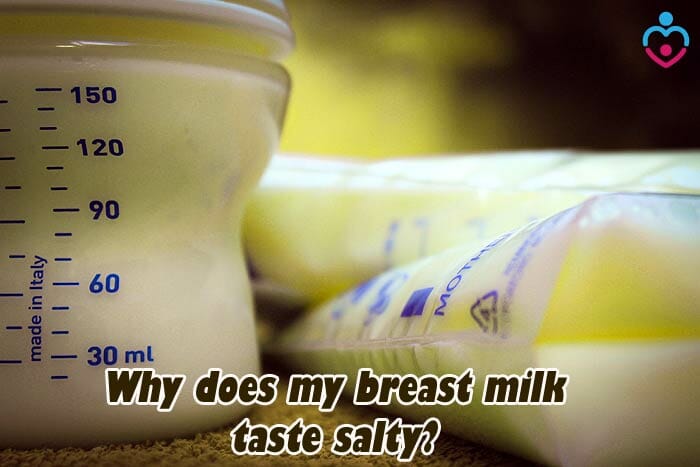
Why Does My Breast Milk Taste Salty? Every mother wonders if the breastmilk they feed their baby tastes and smells the right way. To make sure that your baby gets the best breastmilk, you have to inspect it properly. Breastmilk that tastes salty can be concerning for mothers. Still, it is essential to understand why this might happen in the first place.
Your breastmilk might get a salty taste if there is a high level of sodium or chloride in it. This amount of sodium is directly linked to your diet as a nursing mother and your medical conditions, if you have any.
Jump to:
Why can breastmilk taste salty?
If your breastmilk tastes salty, it is most likely a consequence of your diet. Nursing mothers can directly affect their breastmilk's taste by choosing the right food to include in their diet.
Several aspects could give your breastmilk its salty taste so let's address each one of them!
A) You eat foods that are high in sodium

Your breastmilk is naturally sweet and creamy, but it can acquire different tastes according to the foods you eat daily. For instance, if you eat too much salt, you will affect the taste of your breastmilk and make it saltier than it should naturally be.
- To avoid your breastmilk from being salty, you will have to reduce the amount of salt you eat.
- Try skipping on adding the extra salt to your food and staying away from junk food that contains higher amounts of sodium.
- When you do add salt to your food, opt for iodized salt as this type of salt supports your baby's development.
- Drinking plenty of fluids will also help you keep your breastmilk from tasting salty. Specialists recommend an average of ten cups of water a day for nursing mothers.
Suggested Reading:
![]()
B) You went through an infection

If you went through a breast infection such as Mastitis, your breastmilk would be affected as well. Mastitis is caused by a blocked milk duct or an injury to the nipple. This condition can affect one or both breasts. This condition could come with an infection or just inflammation, and the severity level could vary as well.
- If you think you suffer from mastitis, it is vital to talk to your doctor and follow the appropriate treatment.
- Nursing moms with mastitis shouldn't stop breastfeeding or pumping as it is essential to remove breastmilk regularly from the breast and keep the flow going by stimulating the breasts.
- In addition, the milk supply might decrease in the affected breast, which is another reason why you need to keep breastfeeding despite the struggle.
- Once your mastitis is healed, your breastmilk might taste a bit salty due to the increased concentration of chloride and sodium in it.
- If the form of mastitis you have also come with an infection, this infection will affect the breast tissue, which causes the salty taste. However, the salty taste will disappear after a few weeks, so it is not a permanent side effect.
If the taste of your breastmilk changed as a consequence of mastitis, your baby might be fussy and even reject the breastmilk due to the different taste. If this happens, feed your baby on the other breast that was not affected by the mastitis but make sure you keep pumping your infected breast as well.
Suggested Reading:
![]()
C) Poor hygiene before and during nursing

Nursing involves an excellent level of hygiene as well. You will have to make sure that the containers you use to store your milk are sterilized and that your breasts are clean.
- If you sweat due to increased temperatures, make sure you remove the sweat from your breasts before you pump your milk or before you breastfeed your baby because sweat is salty and can get in the milk.
- Have a clean cloth next to you to wipe your breasts before nursing and after nursing.
- Also, take regular showers, and it will help control the temperature in your nursing room by using a fan or an AC during hot summer days.
Suggested Reading:
![]()
How does breastmilk usually taste?

Breastmilk has a different taste according to the diet consumed by the mother daily. However, in general, breastmilk tastes sweet.
- It has a similar, creamy texture and color to other types of milk, such as cow's milk. Many mothers describe the taste of breastmilk as very similar to the taste of almond milk.
- If you eat plenty of fruits, veggies, and lean meat, your breastmilk will maintain its natural, sweet taste and milky flavor. However, if you add junk food, a lot of processed food, or salty food to your daily diet, you will notice that the taste of your breastmilk changes as well.
- Breastmilk that tastes sour or bitter and has chunks in it might be bad so inspect it closely. Also, if your breastmilk has a greenish tint to it, this could be a sign that its quality was significantly affected, and it is not safe for your baby to consume it.
Suggested Reading:
![]()
What should I do if my breastmilk tastes salty?
If your breastmilk has a salty taste, you want to adjust your diet to reduce sodium in it. Stay away from foods that contain a lot of salt and when you do, add some salt to your meals; use iodized salt.
- You should also talk to your doctor before you start changing your diet too drastically. For example, you might have a breast infection or mastitis that needs to be treated, affecting your breastmilk taste.
- Your doctor will analyze your health state and the quality of your milk, and they will offer you adequate treatment for your condition.
- If your breastmilk is severely affected to the point that your baby refuses to eat it, you will have to switch to formula-based meals. However, if this happens, try to keep pumping your breastmilk until the problem is resolved, so you maintain a good milk flow.
- Your doctor will also advise you regarding the best formula you can get for your baby and what frequency you should feed it to them so the transition will be smooth.
![]()
Final thoughts
Salty breastmilk shouldn't be a concern unless it is a taste that bothers your baby to the point to which they refuse to eat it anymore. However, it is essential to check the cause of the salty taste in your breastmilk to make sure it is not a serious condition that you might have.
If your doctors assure you that the quality of your breastmilk is as good as your baby needs it to be, or if you don't have any underline health conditions, you might not have to make any adjustments or follow any treatment.
![]()




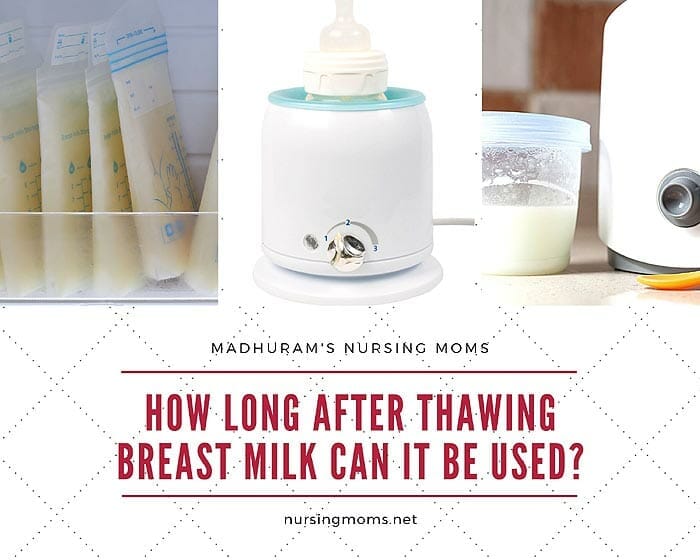
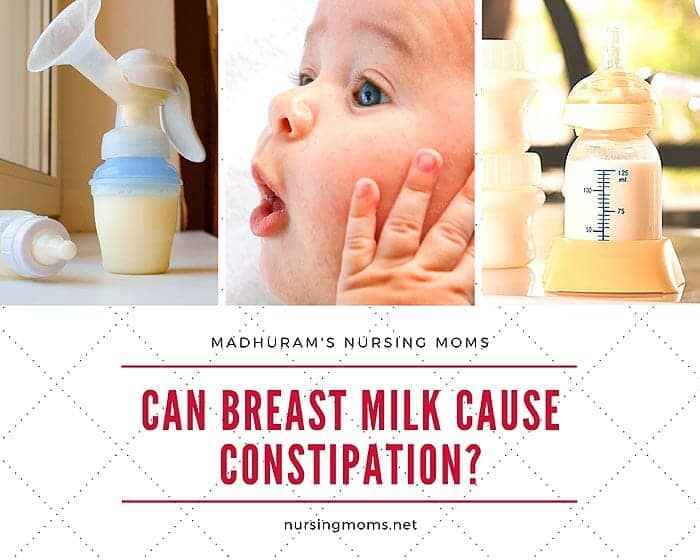
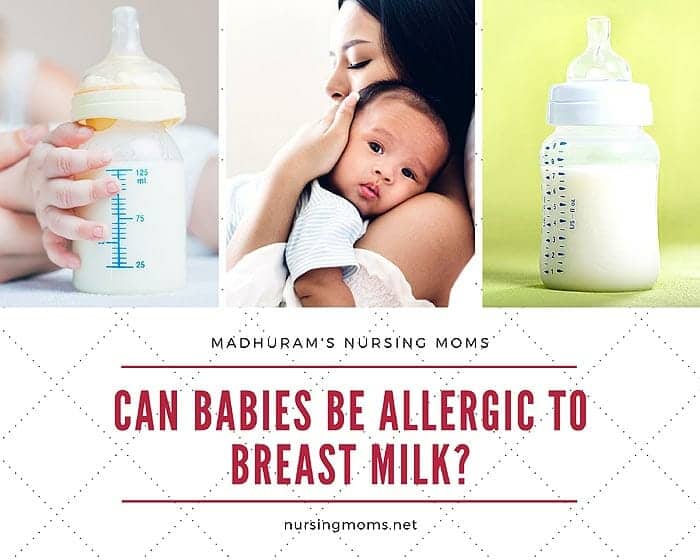
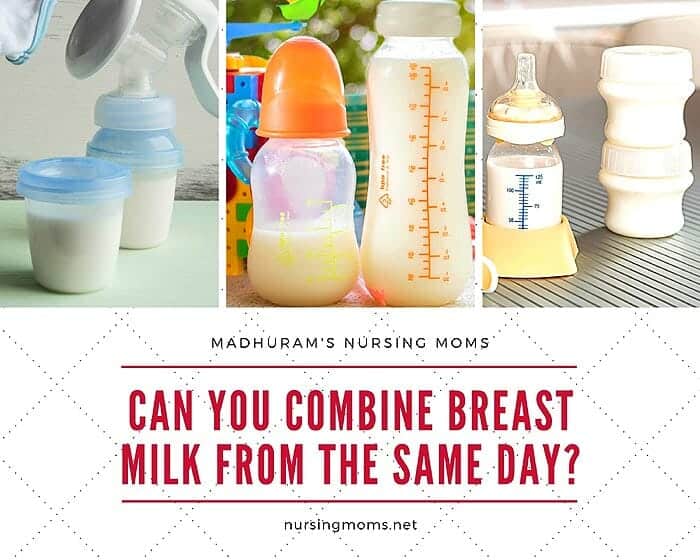
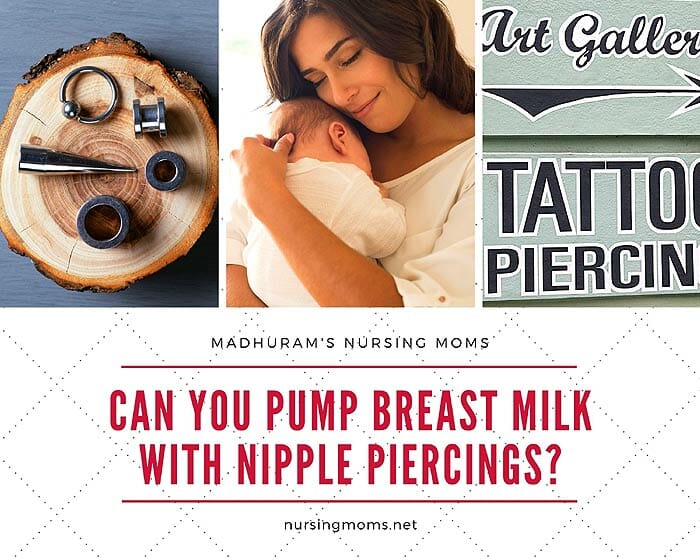
Leave a Reply